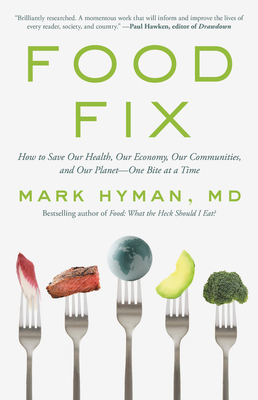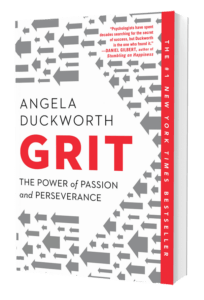Do You want to read a book that is going to piss you off? Most people would say no, but what about a book that pisses you off because it is so thought provoking and puts to the forefront things you thought were happening but lays out a well thought out argument to show you IT IS HAPPENNING!
Food Fix, Mark Hyman’s latest book, is such a book. While I have heard many of these arguments for a long time, this book backs it up with studies, references and detailed sourcing.
The book is comprised of five main parts, each tackling different but related topics surrounding our Health, Economy and Environment.
I do not want to spoil too much and I think every adult and teenager should read this book, so I will be brief in my overview. I will be circulating my copy amongst my circle of influence.
Part 1 is titled: The Health and Economic Impact of Our Food System
Among a number of topics in the first few chapters the author laws out an argument for how the way we look at food and its costs are completely wrong and understated. Also, how the epidemic of chronic disease around the world is due to our food systems. As someone who has overcome my own health challenges and now works with clients in this regard this is not new information to me, but laid out well to share with the average person. This leads to the discussion about how a handful of powerful companies have global reach with their products and how we as society need to push our governments to change fiscal policies to address obesity and disease. We tax the heck out of cigarettes, why not soda?
Part 2 is titled: The Dirty Politics of Big Food
This is the part of the book where you are going to start getting mad and shaking your head. You will learn how Big Food and Agriculture companies control the government and hence food policy. Did you know that there are 21 industry lobbyists for every member of the US Congress? And that the rules in place to protect independence are routinely broken and no one seems to care. You will learn how various governmental agencies tasked with protecting the consumer, that means all of us and our kids are not doing their job and actually allowing these companies to prey on our children in school. And finally, which should be no surprise to anyone, that some governmental policies are actually increasing poverty, promoting disease and destroying the environment.
Part 3 is titled: Information Warfare
If you weren’t already pissed off, the author adds in some more statistics to really get you boiling. He discusses how the Food Industry uses the old tactics of the tobacco industry to distort public health and nutrition science. Also discussed in this section is how many supposed advocacy groups are just fronts for Big food who bribe, I mean purchase partnerships and influence.
Part 4 is titled: Food and Society: The Destruction of our Human and Intellectual Capital
If you are not intricately connected, how many of you think about the farmers and people who grow your food? Maybe you know the guy at the counter at the farmers market, but what about the person in the field in some third world nation picking your vegetables and fruit? The author makes the case that these are neglected victims of our food system. We know this happens, but we usually don’t dwell on it too long as it is an uncomfortable topic. There is a lot of social injustice and oppression by Big Food that many of us are a part of. The last topic in this section discusses how food plays a role in Mental Health. Again, this is something I can attest to personally and with working with my clients.
Part 5 is titled: The Environment and Climate Impact of our Food System
Many people want to jump into various ideological camps about the Environment and as an extension to that Climate Change. There are the usual suspects you hear in the media, but nearly no one discusses the role our food system plays. The author does a wonderful job of outlining how the Food and Agricultural Industries contribute disproportionately to Climate Change, and why we all should care about Soil, Water and Biodiversity. For many people, your preconceived notions you believe or were misinformed on will be shattered.
This book is mostly U.S. focused, but these topics, problems and potentially solutions effect the entire world from the most advanced economies to those emerging.
One of the best things about this book, is that it is not all doom and gloom, it is not all facts, studies and statistics, but provides real actionable steps that everyone of us can do in our own communities or in our own families to start to make a difference. There are checklists throughout where you can make choices for you and your family and your community. Again, I was aware of many of these issues and problems beforehand, but this book really laid it out and has me thinking about my own actions and impact.
While at the time of writing this post, I can’t say I have implemented more than a handful of the recommendations to this point, but I am more educated to have conversations in our household and with others, to not only be more aware but to begin to make other substantial changes over time. That is the greatest gift of this book, awareness and education. I highly recommend it.




